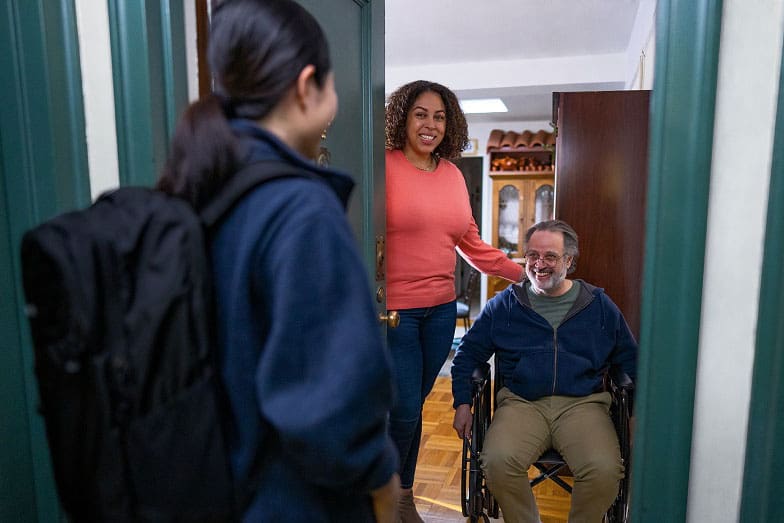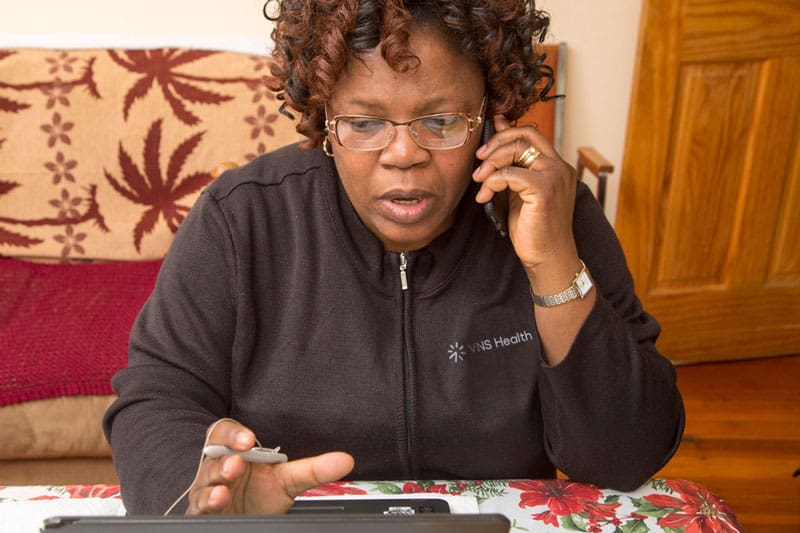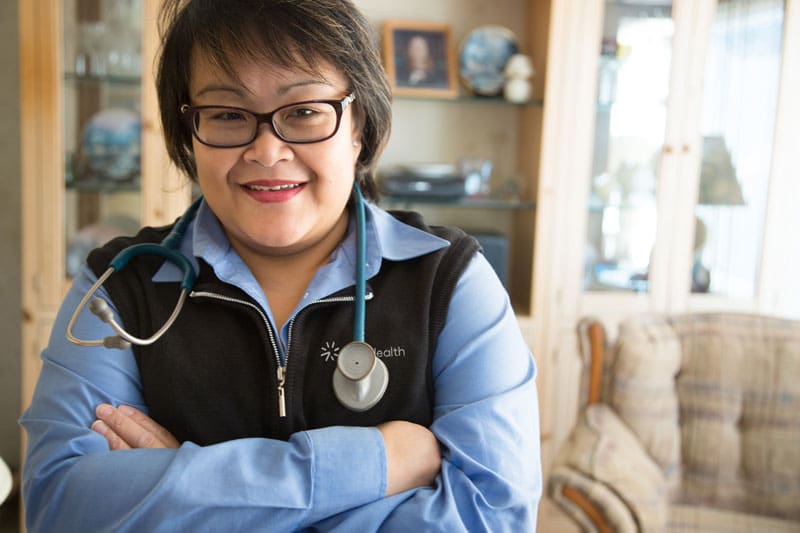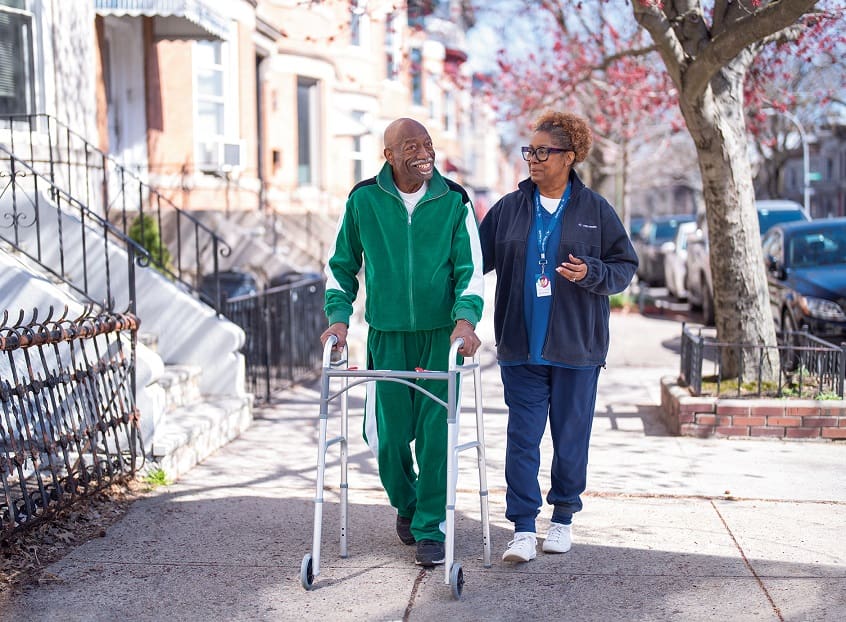Patient & Family Support
Caregiving and recovery take hard work, and they’re often full of unknowns. VNS Health gives you the tools and resources you need to manage your health or take care of a loved one. We’re here to help you, every step of the way.


Find Answers in Our Guides
Home care can be confusing. What’s the difference between a nurse and a home health aide — and which one do I need? How do I know whether I really need care at home? After all, my spouse was able to take care of me the last time I came home from the hospital. Does insurance cover home care? And are there copays or hidden costs?

Health Library
When it comes to getting the help you need, the actual care is only a small part of the picture. VNS Health is also here to give you information you need along every step of the way.
Our health library has articles to keep you and your loved one safe and healthy, guide new caregivers, and support those caring for someone at the end of life.

Caring Delivered
Are you caring for a family member or friend? Caring Delivered is VNS Health’s newsletter just for caregivers. Twice a month, you’ll receive information to help you manage your loved one’s care and get tips to stay healthy yourself.
Sign up today — it’s free!